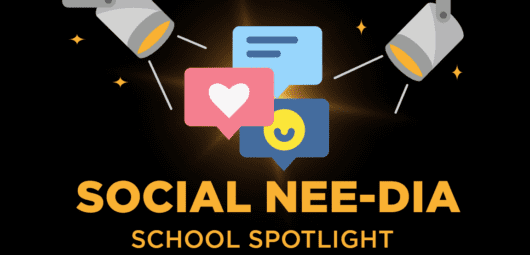Educators, Never Underestimate the Impact of Showing Up
The Network for Educator Effectiveness hosted a webinar with Dr. Melissa Maras on Feb. 9, 2022, titled “Self Care? Don’t Care.” This blog is the second in a series of reflections on our learning around staff wellness and self-care for school leaders. Read the first blog in the series: Overcoming Overwhelm: Strategies for School Leaders.
A few weeks ago, I spent an enjoyable webinar hour with Dr. Melissa Maras, a research consultant at the Assessment Resource Center in the University of Missouri’s College of Education and Human Development. The topic was self-care, and the content and discussion concerning this topic were rich. She began the presentation by defining her philosophy for life and work, and it was this nugget that inspired me to think and reflect. Dr. Maras believes that in work and life, three factors should guide your actions:
- Show up
- Make yourself useful
- Work yourself out of a job
How brilliantly simplistic. Initially, my mind went straight to self-assessment of No. 2 and No. 3. I did not disagree with the first action listed but immediately gave a higher level of importance to the second and third actions. Just as I was mulling over the two of them in my mind, Dr. Maras claimed that showing up was THE most important life action. I couldn’t quit thinking about it through the rest of the webinar and even the next day.
I had come to believe that just showing up was a lazy game and a hollow action that had little merit. I hadn’t given any credit or recognition that simply showing up could have a positive impact on those I served. I was forced to think about both sides of showing up. What happens when I show up, and what happens when I don’t show up? Are there benefits to the simple act of being present? Is there a negative consequence when my presence isn’t available? I pondered these two options through the lens of an educator, and after letting it marinate a few days, I came up with the following thoughts.
As an educator, when I show up:
- I provide a constant for colleagues and students.
- I serve as a piece of a known routine.
- I lay eyes on and give thought to the well-being of others.
- I represent normal.
- My colleagues and students see me.
- I demonstrate that I value the school day.
- I provide a sense of safety and calm.
- I exhibit the values of responsibility and caring.
As an educator, when I do not show up:
- I infuse instability.
- I take away the sense of tranquility that normal offers.
- I cause disorder to the routine.
- I have no way of knowing the well-being of others.
- My presence is not felt.
- I am unable to project a sense of calm through my demeanor.
- It erodes the trust between me, colleagues, and students.
- I am not available to colleagues and students.
How could you look at this list and not realize that showing up is one of the most important things we do as educators? The depth of its impact is the basis for one of the most sacred educational values we have: student-educator relationships. Showing up is more than a knee-jerk reaction to your alarm clock. It is honoring commitments and promises you have made to students and colleagues to exist with them for the greater good. Your presence may be the one thing a student or peer needs to calm their storm. Nothing else can happen if people don’t show up.
So, give yourself credit for the good you do by showing up every day no matter how challenging. Be thankful for the fact that your colleagues are showing up. Celebrate the fact that showing up has a tremendous impact on students, peers, and your school. Regain some energy and satisfaction knowing that sometimes simply showing up is enough.
A big thank you from the Network for Educator Effectiveness team to all educators who have been showing up through some difficult times.
NEE administrators can watch the recording and access all the resources from Dr. Maras’ webinar, “Self Care? Don’t Care,” in the EdHub Library. Log in to the NEE Data Tool, click on EdHub, then scroll down to “Webinar Library.”
Cheri Patterson is a trainer and field support representative for the Network for Educator Effectiveness. She joined NEE in 2013 after an extensive career in K-12 education as a teacher, principal, and associate superintendent.
The Network for Educator Effectiveness (NEE) is a simple yet powerful comprehensive system for educator evaluation that helps educators grow, students learn, and schools improve. Developed by preK-12 practitioners and experts at the University of Missouri, NEE brings together classroom observation, student feedback, teacher curriculum planning, and professional development as measures of effectiveness in a secure online portal designed to promote educator growth and development.


